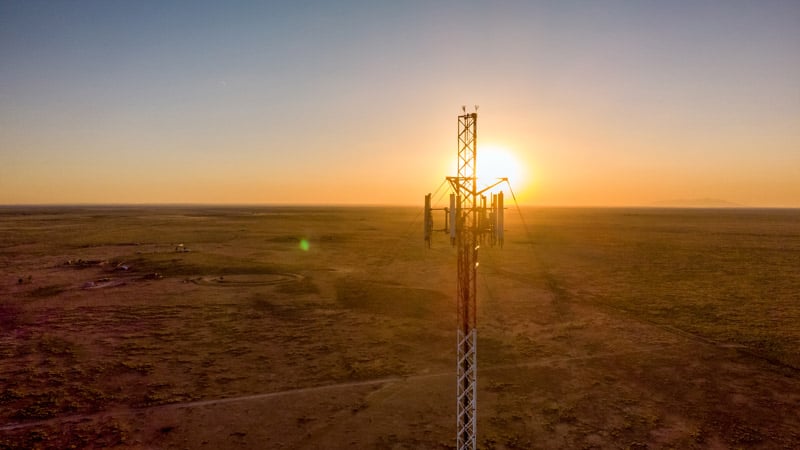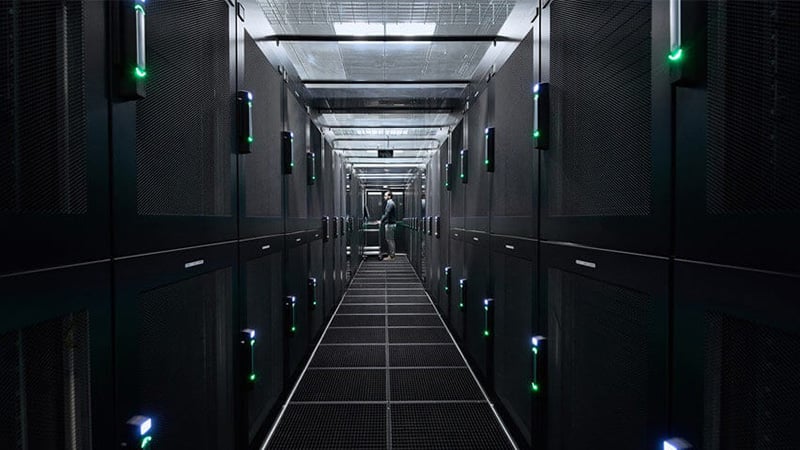On October 28, 2021, Mark Zuckerberg, CEO of Facebook, announced at a virtual reality event his intentions to change the future of the internet as we now know it. He made public the new name of his company, Meta; and said he would dedicate himself to building the metaverse, the next level of interconnection.
Simply put, the Verified Market Research defines the metaverse is a virtual world built from interconnected digital spaces, with immersive experiences that blend digital and physical environments and encourage interaction and collaboration across the globe.
Since Zuckerberg’s announcement interest in the meta verse from companies and the public has been building. In fact, according to Gartner, by 2026 it is estimated that 25% of people worldwide will spend at least one hour a day in the metaverse, and this demand will likely grow.
For Latin America, this technology represents significant business opportunities in areas such as security, transportation, logistics, education, entertainment, manufacturing, and tourism.
A recent study by Analysis Group, commissioned by Meta, estimated that the metaverse economy in Latin America could reach $320 billion in a decade.
Nick Clegg, president of Global Affairs at Meta, emphasized the great opportunity the region is experiencing in an article published by El País, in terms of this technology, despite still being considered an emerging market. According to Clegg, more than 100 million people in Latin America use augmented reality effects on Facebook and Instagram monthly. Brazil and Mexico are among the top 10 countries that use Meta's software, Spark AR, to develop filters.
We are on the cusp of a trend with great potential to impact the region’s IT and data center industry if we focus on resolving two paradigms: infrastructure and people.
An ecosystem in which the metaverse can thrive
In Clegg's vision, the next ten years will be vital for Latin America to prepare the digital infrastructure necessary to support the metaverse.
The Analysis Group study states that some of the early components of the Metaverse and the experiences it aims to enable rely heavily on technologies such as augmented reality, virtual reality, mixed reality, blockchain, non-fungible tokens, among others. Likewise, mobile technologies are key to ensuring more immersive and closer experiences.
For the metaverse to develop, our region has a lot to work on in terms of mobile connectivity, bandwidth, a faster and more efficient network, and greater data processing capacity. The main digital infrastructure requirements for the region are mobile connectivity, 5G, and edge computing.
- High-bandwidth connectivity:To deliver truly interactive and real-time experiences, the region's connectivity must provide high levels of bandwidth and minimal latency. In Latin America, Chile, Brazil, and Uruguay appear as the countries with the best bandwidth according to the Worldwide Broadband Speed League 2022, with levels of 50 to 100 Mbps. The vast majority of South America, Mexico, Costa Rica, and Panama reach a bandwidth of 20 to 50 Mbps and the rest range between 0 and 20 Mbps. Regarding mobile connectivity, data from Statista revealed that only 57% of the Latin American population has at least one active mobile internet service and 40% have coverage, but do not use it.
- The awaited deployment of 5G: When it comes to 5G, Statista projects that around 14% of access to mobile networks in 2025 will be through this technology. It also foresees that a total investment of US$ 120 billion million will be needed to promote the deployment of 5G and guarantee coverage with a uniform speed of 50 Mbps throughout the territory of Brazil, Mexico, Argentina, Colombia, Chile, and Peru.
- Data processing at the edge: The metaverse seeks to emulate a more natural and dynamic communication where delays are not acceptable. For this to happen, large processing capacities are needed and must be provided as close as possible to the user. Edge computing is the key to achieving this. By processing data closer to the source, edge computing can help protect sensitive data and reduce the risk of cyber attacks.
Edge computing can also help improve connectivity in rural and remote areas of Latin America by bringing computing resources closer to the end user and can help reduce latency and improve response times for applications and services, leading to more efficient and effective operations. This growth of edge computing in Latin America can lead to the creation of new job opportunities and drive economic development in the region.
For Vertiv, the integration of 5G, edge, and the metaverse will be one of the biggest trends in the data center industry starting this year, followed by widespread deployments in the coming years.
Trained workforce for the metaverse
When talking about the metaverse, there is usually a topic that is not covered enough: Investing in the talent required to manage infrastructure is just as important as the investments in infrastructure.
The truth is that Latin America currently needs more specialized professionals to handle the highly technological requirements that the metaverse demands. A study by PageGroup, a consulting firm specializing in personnel selection, revealed in a 2022 report on competitive STEM positions, 48% of IT job vacancies cannot be filled due to lack of professionals.
Latin America is at a pivotal point in its ability to support the future of the metaverse, and to be competitive in this new technology, companies will need to invest in infrastructure, infrastructure support and digital talent.
Key infrastructure support components
Vertiv is uniquely positioned to provide the hardware, software, analytics and ongoing services that provide the infrastructure support for the metaverse, what we are calling “Metastructure.” We are defining Metastructure as the critical infrastructure support capabilities that enables the metaverse.
Many of our products are components that provide support to the metaverse whether they support low latency, security, or efficiency. Our focus includes:
- Modular solutions
- Integrated racks
- Liquid cooling technology
- Lithium-ion batteries
- Innovative power technologies
- Optimized services for secure digital health monitoring and predictive maintenance.
In addition to these key infrastructure support components, investment will also be needed in areas such as security, data privacy, and regulations to ensure the responsible and ethical operation of the metaverse.
To help prepare a company’s digital infrastructure for trends like the metaverse, Vertiv provides a complete portfolio of power, thermal management, IT management, modular edge data center solutions, and fully distributed service coverage throughout Latin America. For more information, click here.






